Life is full of scheduling conflicts, but some situations carry a weight that simply can’t be compared. In healthcare, timing is often a matter of safety, and procedures are carefully coordinated to protect patients’ well-being. For surgeons, shifting a case isn’t just inconvenient, it can disrupt an entire chain of medical professionals, resources, and patient care.
This reality came into sharp focus for today’s Original Poster (OP), a surgeon who shared that just as she was preparing for a routine but important gallbladder removal, a patient’s daughter asked if the surgery could be moved. What shocked her was the reason behind it, and what followed was a clash between medical responsibility and misplaced priorities.
More info: Reddit
Honestly, hospital visits are stressful enough without having to navigate unreasonable demands from family members

Image credits: hryshchyshen / Freepik (not the actual photo)
The author, a surgeon, prepared to perform a routine gallbladder removal
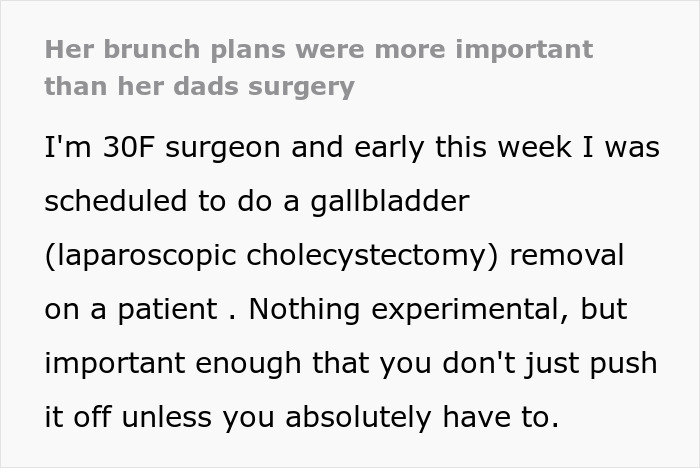
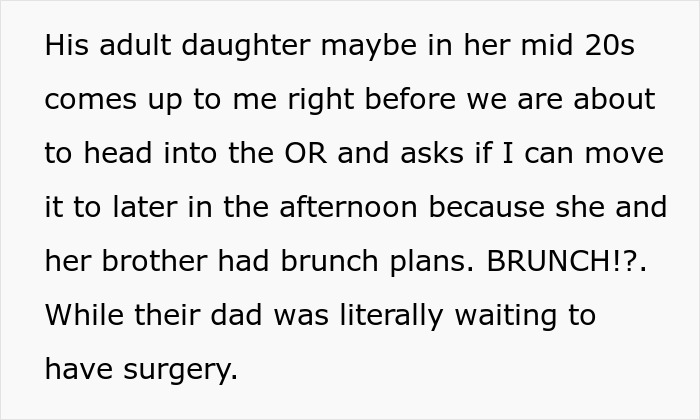
Image credits: JennyVix

Image credits: DC Studio / Freepik (not the actual photo)
Just before the procedure, the patient’s adult daughter asked her to delay it so she and her brother could attend brunch
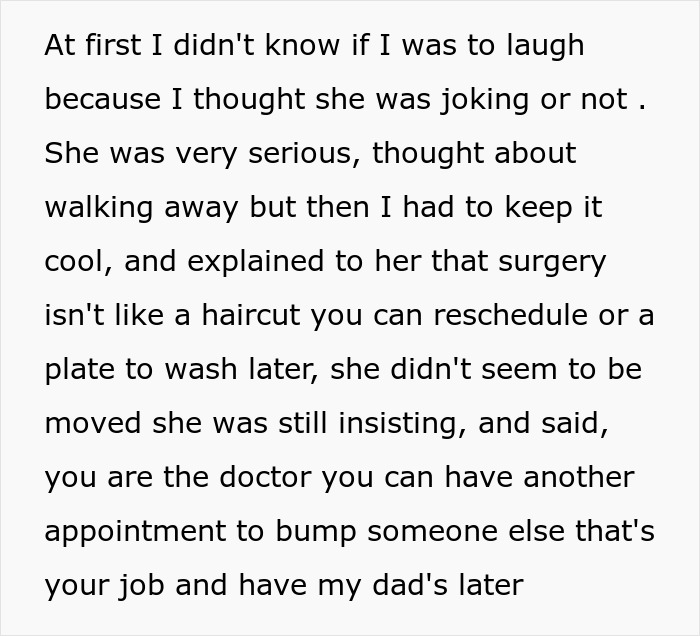

Image credits: JennyVix

Image credits: drobotdean / Freepik (not the actual photo)
She explained that surgeries aren’t casually rescheduled, but the daughter insisted, suggesting the doctor bump another patient instead
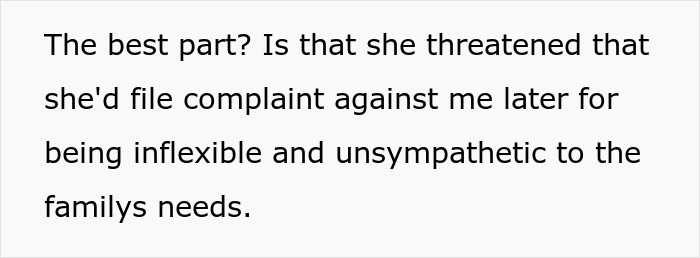
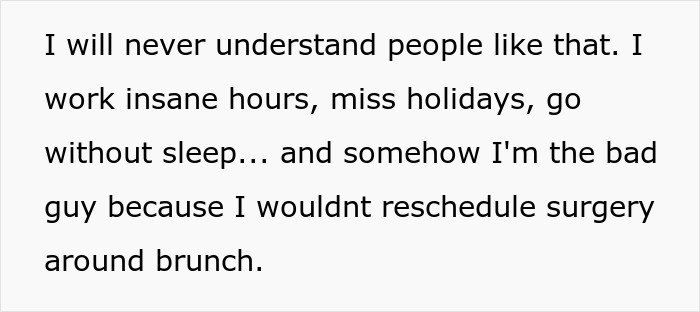
Image credits: JennyVix
When she refused, the daughter threatened to file a complaint, leaving the doctor frustrated but committed to prioritizing her patient’s care
The OP was preparing for a routine laparoscopic cholecystectomy, an important but common procedure which is best not to push off unless there’s a pressing need to. Just before heading into the operating room, the patient’s adult daughter approached and made an unexpected request, asking that the surgery be pushed back because she and her brother had brunch plans.
At first, the OP thought it had to be a joke. But no, it was a very serious demand and when she explained that surgeries aren’t just shuffled around like calendar reminders, the daughter doubled down and suggested the OP should simply “bump” another patient instead, insisting that was her job.
To make matters worse, the daughter threatened to file a complaint against the OP for being “inflexible and unsympathetic” to the family’s needs.
The process of rescheduling surgery is far more complicated than most people realize, and Luma Health affirms this. They explain that it isn’t just about moving one appointment on a calendar, but that it involves balancing many interdependent factors.
For instance, surgery times can run longer than expected, emergencies often take precedence over planned procedures, and last-minute adjustments are frequently required on the day of surgery. Some of these moving parts mean that shifting even one surgery can disrupt an entire day’s schedule.

Image credits: luis_ricardo_fotografo / Freepik (not the actual photo)
Research from Gibson Research Consultancy highlights that many patients and their families often lack accurate medical knowledge, largely due to differences in health literacy, uneven access to reliable information, and reliance on informal sources which is why they sometimes present unreasonable demands.
It highlights that this knowledge gap can make it difficult for them to fully grasp medical instructions, diagnoses, and treatment plans. However, for hospital staff, the consequences are significant as poor understanding frequently leads to communication challenges, repeated explanations, and added workload.
Over time, this strain contributes to staff burnout and lower morale, compounding the pressures healthcare professionals already face. On a broader level, Cabem notes that a consequence of gaps in medical knowledge among patients and families is that families may struggle to follow medical advice, which will ultimately lead to poor adherence and a higher risk of errors.
These misunderstandings also create operational inefficiencies that disrupt the flow of hospital care, ultimately affecting both quality and safety. For healthcare staff, the added burden makes collaboration more difficult and intensifies workplace stress, further straining the hospital environment.
Netizens expressed disbelief at how casually some people treat medical procedures, sharing similar experiences from healthcare settings. They then praised the OP’s professionalism and composure, admiring her restraint in not confronting the daughter more harshly.
What do you think about this situation? Do you think the daughter was just clueless, or was this entitlement at its peak? We would love to know your thoughts!
Netizens couldn’t believe how non-medical people often don’t realize the huge coordination effort behind a single surgery
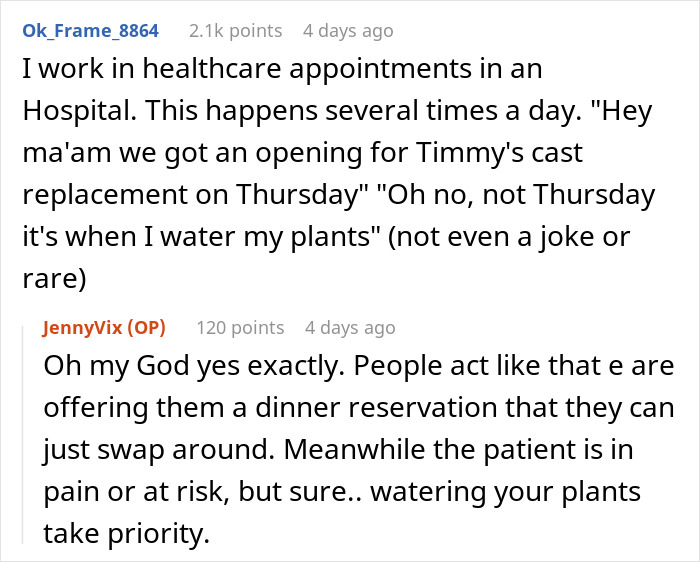
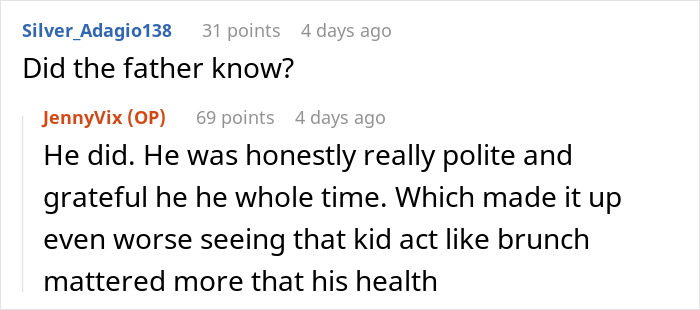
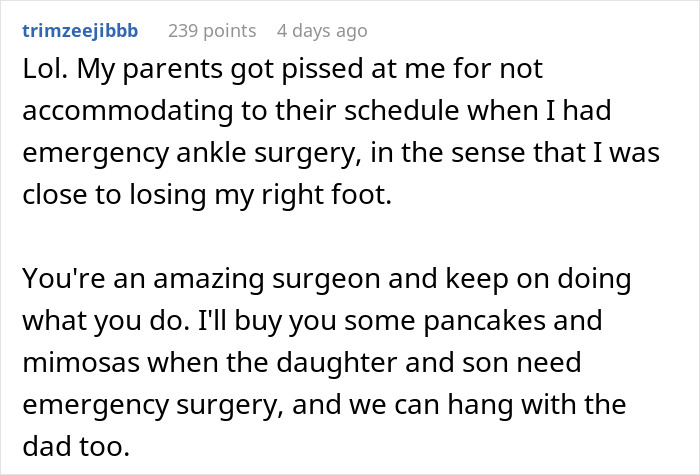
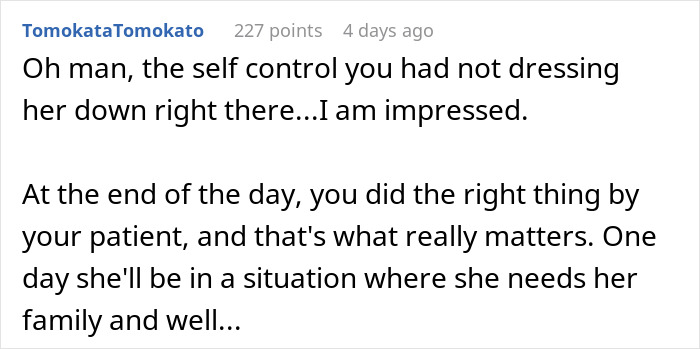
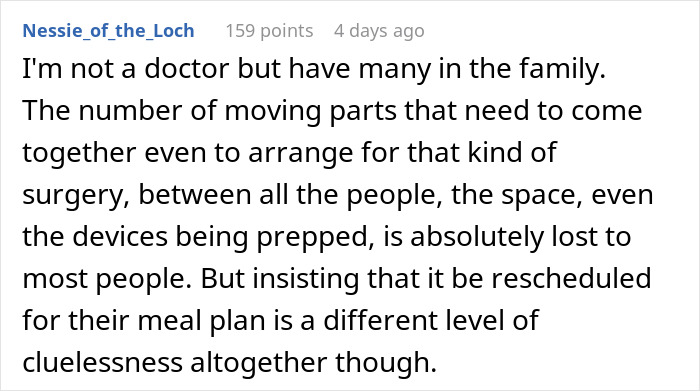
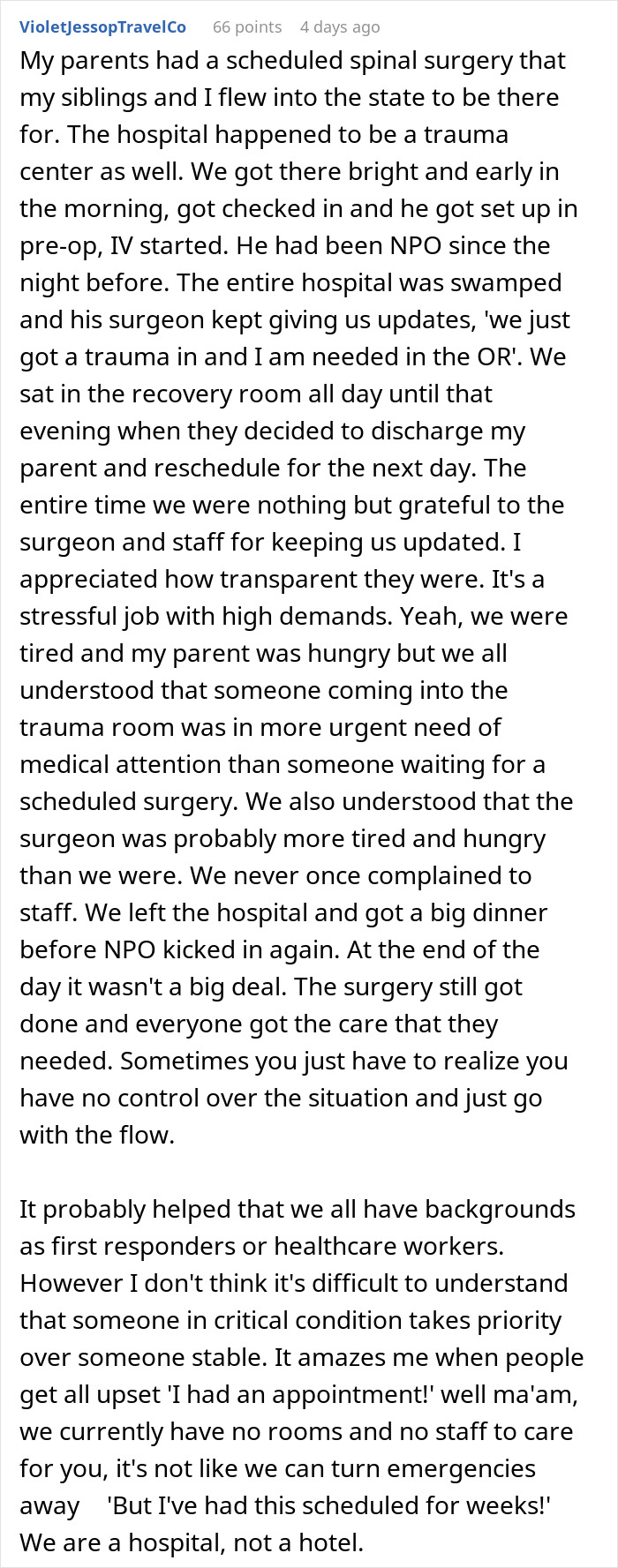


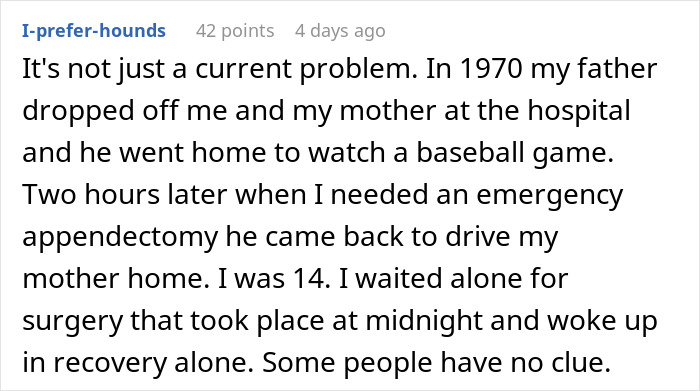
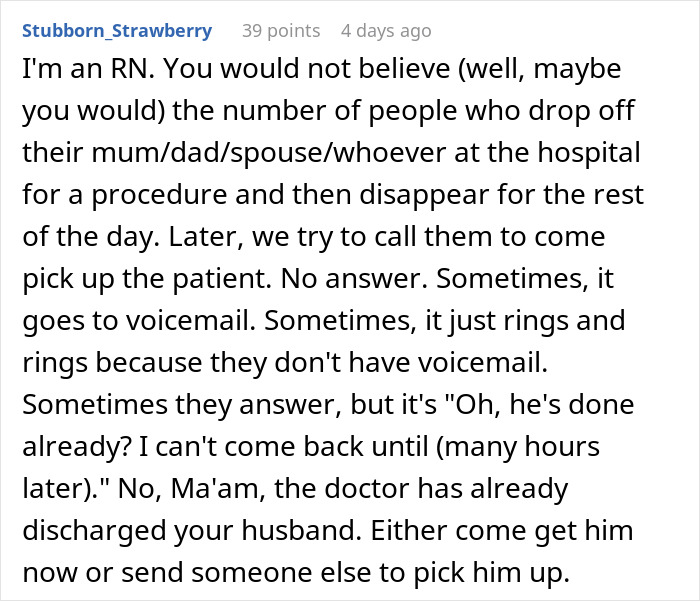
 Follow Us
Follow Us





